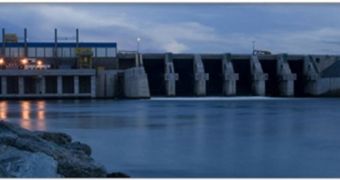In most of the cases, the activities of major corporations disrupt the balance of indigenous populations living in that area. This is the case of an important Brazilian enterprise that decided to abandon its ample project in Peru, after a brief meeting with the Ashaninka of the Tambo River.
Representatives agreed upon the fact that their operations might influence the wellbeing of 14,000 inhabitants, living along the Tambo and Ene Rivers, reports Mongabay.com.
At this point in time, officials from the company state they will give up the long-time feared Peruvian dam plan, according to International Rivers.
In order to make their intention official and widely known, they have written a letter to the Peruvian Ministry of Energy and Mines, affirming that the controversial 1278-megawatt Tambo-40 Dam located on the Tambo River in the Peruvian Amazon is no longer part of their future plans.
Odebrecht, the construction company, states that its decision of abandoning the operation in the area highlights a deep respect for the local populations' opinion.
After meeting the Ashaninka of the Tambo River, the enterprise thought it is better to reconsider its attitude and look for a more appropriate location for their future actions. At this point in time, the Ashaninka will have to deal with Electrobrás, another enterprise that manifested its intention of building a dam in the same region.
Manuel Leon, an Ashaninka leader appreciates Odebrecht's decision of abandoning the project, an action considered beneficial for the local people whose lives depend entirely on rivers across the Amazon Basin.
Even if the major company decided to respect the indigenous inhabitants' position, in most of the cases enterprises have a hard time letting go of future plans considered floating gold mines.
This appears to be the case of the construction company in charge of the Belo Monte Dam, a proposed hydroelectric dam complex with a planned capacity of 11,233 megawatts (MW).
While benefiting from a considerable financial support, the project developers had no problems in convincing a judge that their operations would have no impact upon the environment or the population. The court's verdict was in their favor, despite that future operations could flood approximately 400,000 hectares of rainforest, making 10,000 people relocate.
All in all, Odebrecht decided to willingly pack its bags and leave, but its successors might not be willing to cooperate. The natives may have won an important battle, but the war is definitely not over.

 14 DAY TRIAL //
14 DAY TRIAL //